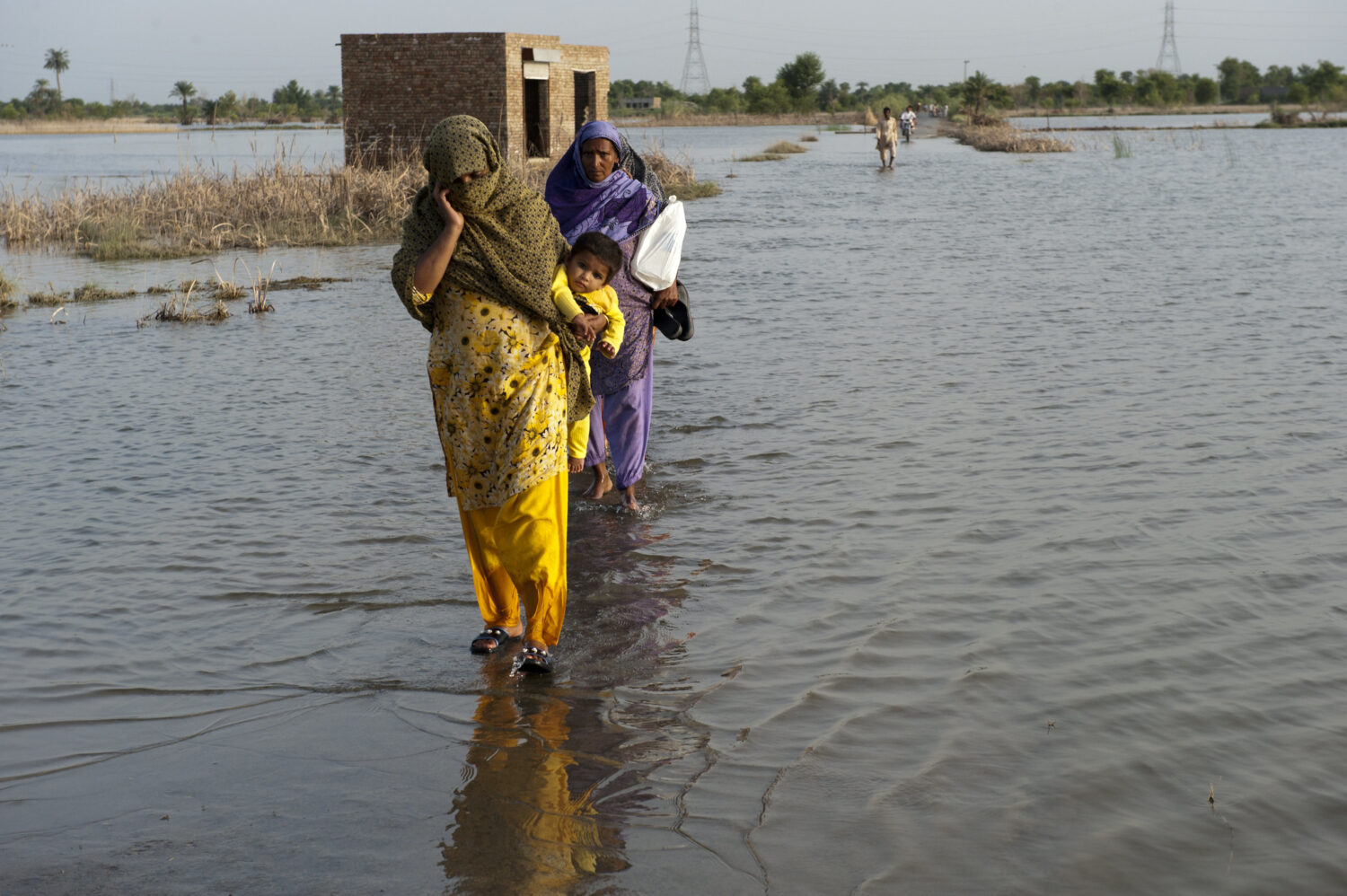A joined-up approach
The government is seeking to justify its failure to tackle the climate crisis by citing apparently competing commitments to help women and girls. But climate progress and gender equity are intrinsically linked, argues Emily Taylor
A briefing note leaked last week, which indicates that the Conservatives intend to drop the £11.6bn climate and nature funding pledge agreed at Cop26, added insult to injury by suggesting that meeting climate targets would “squeeze out room for other commitments such as humanitarian [efforts] and [helping] women and girls.”
This is reflective not only of Rishi Sunak’s noncommittal approach to climate change, but of dangerously siloed thinking. The climate crisis is a humanitarian crisis, and gender equity plays a critical role. Elevating women’s voices—at home, and in developing countries—should be a key part of our climate mitigation and response.
As the Tories continually fail to address climate change with the urgency it requires, Labour has an opportunity to craft a holistic, inclusive, humanitarian climate strategy that shifts the narrative, positions the UK as a climate change leader, and honours our international obligations.
Climate problems abroad minimise climate progress at home
While UK emissions fell 3.4 per cent in 2022, global greenhouse gas emissions are at an all-time high. It is tempting to think that this is not our problem, but we have a responsibility to engage in the system of international cooperation to combat global heating. The Intergovernmental Panel on Climate Change (IPCC)’sSixth Assessment Report states with high confidence that international cooperation has positive and measurable impact on the climate. “The Kyoto Protocol led to measurable and substantial avoided emissions, including 20 countries…that have experienced a decade of declining absolute emissions.”
In this spirit, rich countries pledged $100bn annually to developing countries at Cop15, a landmark commitment which recognised the special responsibility of developed countries for historical greenhouse gas emissions. It is this promise that the government is now shrinking from. This is a mistake: besides minimising our legitimacy as a climate change leader, it puts the UK at huge risk of damaging its international standing. Even within the Conservative party there is agreement that leaders are not going far enough. Last week, former Foreign Office minister Zac Goldsmith resigned, citing Rishi Sunak’s “apathy” towards the environment as a critical oversight that would “shred” the UK’s global reputation.
Funnelling capital commitments to women in developing countries, and in the UK, could fast-track net zero
This is not simply a question of money, however. Policymakers still fail to adequately recognise gender equity as a vehicle to fast-track net zero.
Nowhere is this clearer than in the UK’s revamped net zero strategy, which has been widely criticised as optimistic and having “very generous” targets. As Ed Miliband, shadow climate and net zero secretary, recently told MPs: “A target for less than seven years’ time, and they [the government] are miles off … all of the policies, all of the hot air, don’t meet the target they promised on the world stage.”
The strategy includes policies on the transition to renewable energy, electric vehicles, and carbon capture, but does not set out how to implement such technology or measure progress in a way that maximises impact. Could getting more women in the room during policy development help to level-set government projections?
It’s possible. A Bloomberg NEF study found that companies with at least 30 per cent women at the boardroom level typically score better on environmental disclosures, are more likely to set clear climate governance strategies, and show greater transparency on climate data, including overall emissions.
In developing countries, a similar picture emerges. When provided equal access to resources, women consistently increase agricultural yields by 20 to 30 per cent, improving total agricultural output by 2.5 to 4 per cent. Applied at scale, these results could reduce world hunger up to 17 per cent. But they don’t have equal access to resources: though women represent 50-80 per cent of the global agricultural workforce at any given time, they own only 10 per cent of land.
Such research demonstrates women’s clear value-add to net zero initiatives. How much more could be accomplished if these insights were effectively leveraged?
Holistic, humanitarian, equal: the opportunity for Labour
The UN has long urged governments to incorporate gender perspectives into national policies, particularly as relating to climate change, but the Conservatives’ knee-jerk suggestion to reduce resources earmarked for humanitarian efforts and support for women and girls suggests that the current approach is a limited one.
As evidenced by Bloomberg’s boardroom assessment and significant progress made in agriculture, women have consistent success in embracing and implementing new technology, often with demonstrably better results than their male counterparts.
By combining humanitarian efforts, gender equity and climate policy, a Labour government can excel where a Conservative government has failed. It is time to redefine what is meant by ‘climate crisis’ and look at the problems we face holistically. Similar to Biden’s USAID effort, Global Action for Climate Equity, we can support developing economies in using funds to empower women on the front lines of climate response, while informing more inclusive national policies at home.
Image credit: Asian Development Bank via Flickr

